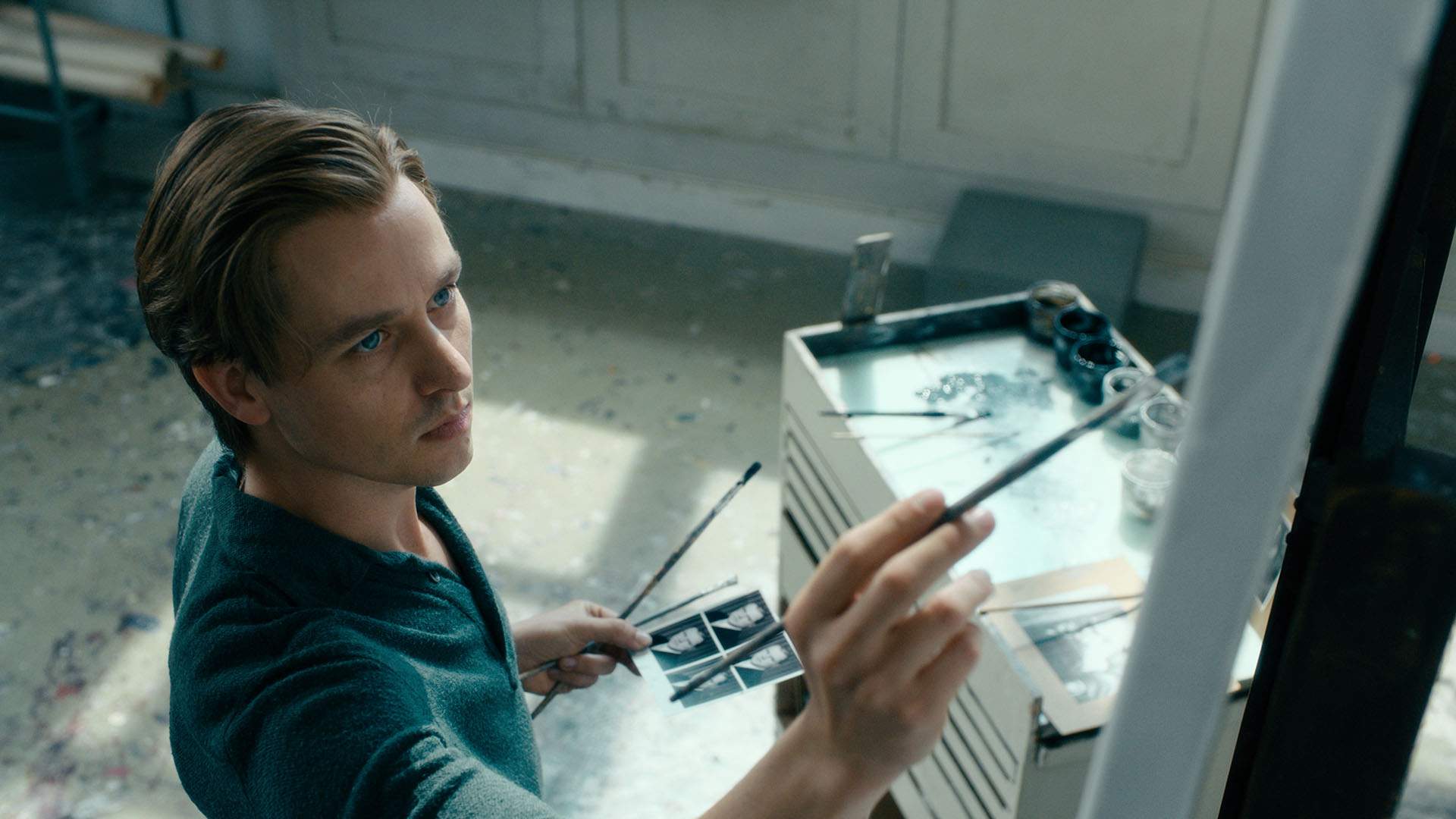Never Look Away
Fictionalising the life of German artist Gerhard Richter, this Oscar-nominated drama is impressively acted but feels a little too neat.
Overview
When the Nazis seized Germany during the 1930s, the party cemented its presence in many ways, however two stand out in Never Look Away. Firstly, Hitler's underlings began ruthlessly eradicating anyone deemed undesirable. Secondly, the growing facist regime deployed propaganda to condemn so-called degeneracy, including via art showcases about socially unacceptable pieces. Witness to both was a boy, Kurt Barnert (Cai Cohrs). He attended an exhibition with his beloved aunt Elisabeth (Saskia Rosendahl), was encouraged by her to explore his own creative streak and think for himself, and then watched on as she was taken away due to her mental health. Kurt is a stand-in for real-life artist Gerhard Richter, in a cinematic dance between fiction and history. But Never Look Away's message is clear: that some of Germany's greatest art masterworks are a product of living through the country's worst days, grappling with them and committing that conflict to canvas.
If only Florian Henckel von Donnersmarck's film took this idea to its core, instead of merely depicting it. If only it too was a work of great conflict and texture, rather than a curiously straightforward fictionalised biopic. The filmmaker's return to Germany after winning an Oscar for 2006's The Lives of Others, then heading to Hollywood for dismal Angelina Jolie and Johnny Depp vehicle The Tourist, Never Look Away is a handsome, engrossing picture. It tells a compelling tale with impressive performances to match, never drags across its lengthy 189-minute running time, and earned Academy Award nominations for Best Foreign-Language Film and Best Cinematography for its efforts. That said, it's also as standard a version of the story as there is — and if our collective traumas have taught the world anything, it's that complexity remains even in the most clear-cut cases of good versus evil.
As a young man forever shaped by childhood experiences both rewarding and tragic, Kurt (now played by Tom Schilling) emerges in post-World War II Germany as an aspiring artist. First, he paints signs. Then, he attends an East German art school, where he is taught to practise his chosen field with a communist mindset, and to specifically apply his skills to social-realist murals. Rallying against such strict confines, Kurt searches for creative freedom and challenges, which he finds in West Germany's Düsseldorf Art Academy under the tutelage of Joseph Beuys-surrogate Antonius Van Verten (Oliver Masucci). But he can't escape the past, not even in the arms of fellow student Elisabeth 'Ellie' Seeband (Paula Beer), whose gynaecology professor father Carl (Sebastian Koch) was responsible for sending Kurt's aunt to her death.
Writer-director von Donnersmarck may have based his script on conversations with Richter, copious research and facts about the artist's father-in-law, and yet there's a prevailing feeling that colours Never Look Away's warm-hued frames. While its real-life details prove anything but, this is a neat movie. There are many ways to convey and explore the truth, with the German filmmaker choosing to easily join the dots. That his picture devotes so much time to showing how Kurt endeavours to interrogate the past, how that influences his work, and the thoughtful ways in which he brings his anguish and agony to his canvases, only shines a brighter light on Never Look Away's narrative and thematic tidiness. As Richter's pieces have screamed for decades across everything from photo-realistic images to abstract designs, there's little that's orderly about the way he's been sifting through his life via his art. Indeed, many of the film's best moments, focusing on Kurt in his art school studio as he struggles with making the paintings he's driven to create, show exactly how this is the case.
As a result, Never Look Away does actually prove conflicted, albeit not in the way that a movie about an artist who sees the Nazis' horrors then falls in love with the daughter of an ex-SS officer should be. Rather, the film is conflicted about retaining its links to Richter and smoothing out his story for easy dramatic effect. It's also conflicted about sitting half-way between fact and fiction, not only filtering one man's tale through a simplified lens, but reflecting history through that same perspective as well. And viewers should feel conflicted watching it, too. Many of the picture's components are stellar, with the excellent Schilling, Rosendahl and Beer all turning in moving, nuanced performances, and cinematographer Caleb Deschanel giving the film a simultaneously classical yet probing look as well. Alas, as involving and visually striking as Never Look Away is, there's no mistaking that this is the glossy, not thorny, version of an inherently tricky slice of life.





